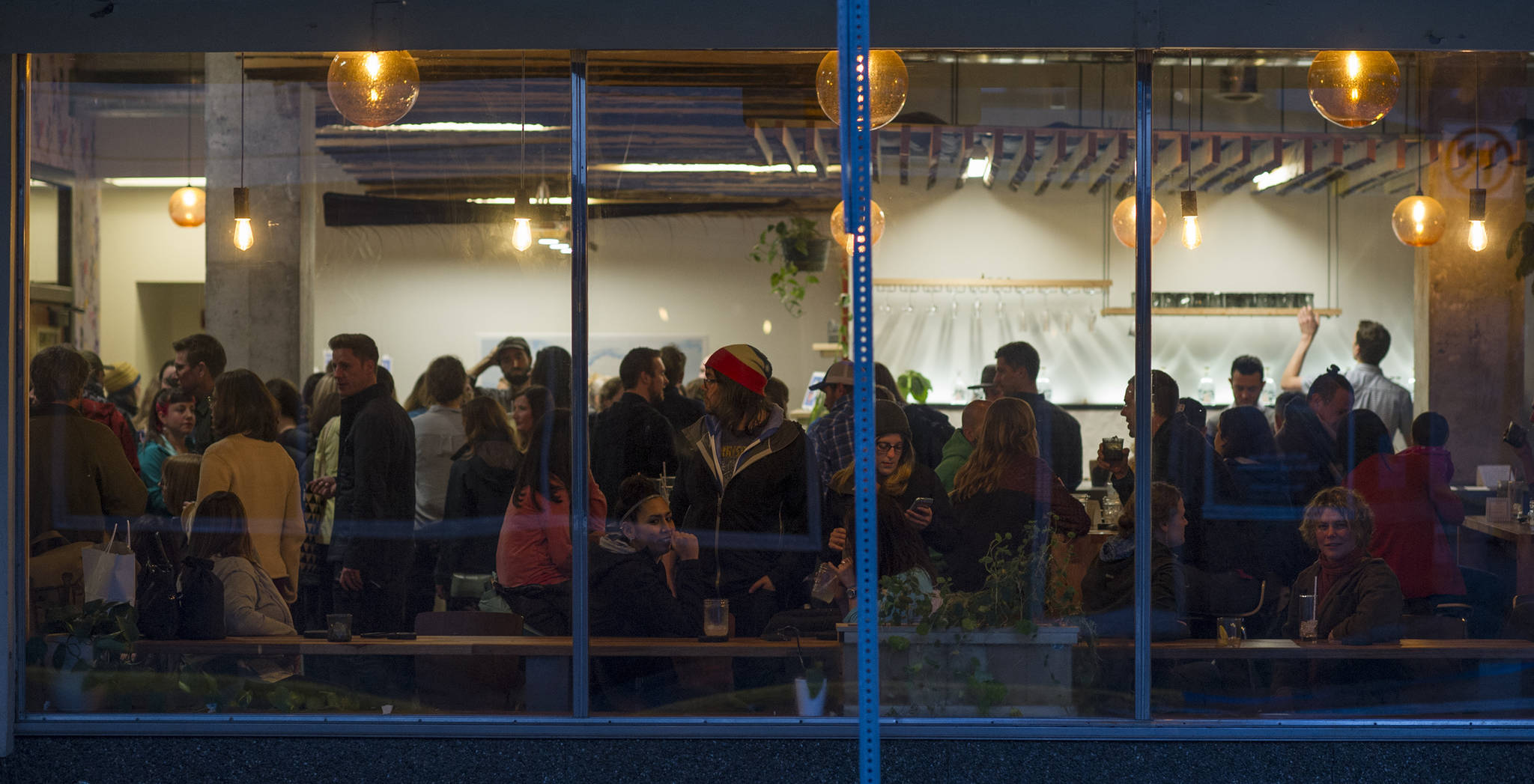The status quo will stay.
Despite almost three hours of debate and discussion, a deeply divided state alcohol board was unable to decide Monday whether Alaska’s nine operating distilleries can continue to serve cocktails in their sampling rooms.
With board chairman Bob Klein — who works for a distillery — recused from the discussion, the board tied 2-2 on a motion intended to guide the staff of the Alaska Alcohol and Marijuana Control office.
That clearly frustrated board vice chairman Ellen Ganley, who said, “It’s gotten to the point of being absurd.”
The board’s inaction means the Alaska Alcohol and Marijuana Control Office’s existing procedures will remain unchanged: Distilleries can keep serving cocktails and will not receive notices that they are violating state regulations. AMCO director Erika McConnell confirmed that interpretation by email.
The question the board failed to answer is straightforward: What is meant by “the distillery’s product”?
In 2014, the Alaska Legislature passed House Bill 309, which allows distilleries to operate tasting rooms and sell samples, just as breweries and wineries already did.
HB 309 says in part: “a holder of a distillery license may sell not more than three ounces a day of the distillery’s product to a person for consumption on the premises.”
Rather than serve those samples straight, distilleries mix them into cocktails.
The practice went unnoticed by regulators until this spring, when a complaint brought the issue to the attention of AMCO. In August, AMCO director Erika McConnell issued a notice: Under AMCO’s interpretation of the law, a distillery’s product is liquor, not a cocktail.
The issue came to the alcohol board in September, and members voted to start a long-term project to examine state regulations, but the key question remained unresolved: What is “the distillery’s product?”
The alcohol board met in a special telephonic meeting Monday to address that question but could not decide. For board members, the division seemed to be over the question of regulatory authority.
Does the board have the ability to regulate non-alcoholic mixers like orange juice?
Ganley, of Fairbanks, and Rex Leath of Wasilla believe not.
Thomas Manning of Juneau and Robert Evans of Nome took a different approach, arguing that once those non-alcoholic mixers are poured into a glass with alcohol, they become a regulated beverage.
Furthermore, they said, Alaska’s three-tier system of alcohol licenses is designed to separate manufacturers, distributors, and retailers. The creation of tasting rooms has blurred the lines between those tiers of licenses.
Manning, arguing against distillery cocktails, said he believes the “manufacturing process is the distilling process.”
He said “it’s crazy” to think that standing behind bars, mixing a cocktail, is manufacturing.
Bar owners have generally opposed the idea that distilleries can serve cocktails. In previous public testimony, bar owners said they have paid substantial amounts of money for state-regulated retail licenses and view retail sales by manufacturers as an infringement upon the rights of retail licensees. Distilleries, meanwhile, have testified vocally that they are meeting public demand and are not violating the law.
“We are kind of in a stalemate,” McConnell said as the meeting came to a close.
That stalemate will last for at least one more month, as the board is again scheduled to consider the topic in November. Final action is unlikely then, however, as the state’s regulatory process likely will require one more public meeting.
• Contact reporter James Brooks at james.k.brooks@juneauempire.com or call 523-2258.

